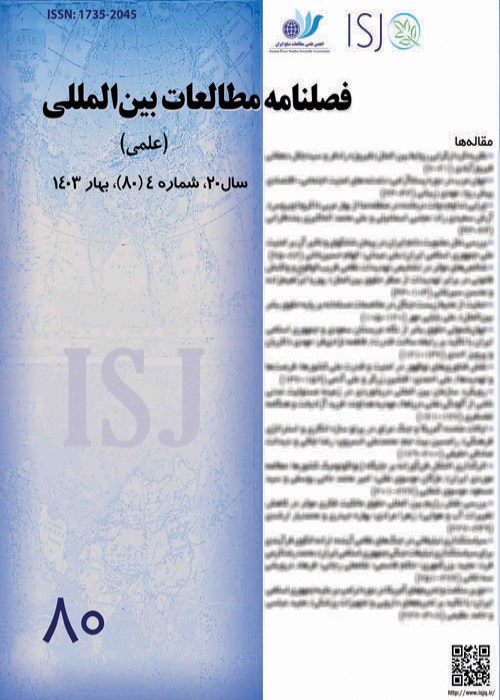Clausewitz and the Struggle for Recognition in a Newly Globalized World
Author(s):
Abstract:
The recognition as an equally valued subject as a solution for conflicts about material interests and power related subjects is the main point of the Clausewitz theory. In the twenty-first century, due to the effects of globalization, war and violent conflicts are characterized by the hybrid combination of the instrumentality of war and the struggles for a renewed recognition as a result of a formerly denied recognition. It is not our intention to psychoanalyze Clausewitz and the meaning this problem has for his development, but only to stress that he was ready to defend his equality. Relatedly, today, the Arab world is in a state of change and social overthrows are due to increased mobility, progressive urbanization, and a secular intercourse with Islam. People in the Arabic world are still in the adjustment process within the first modernity and at the same time have to deal with the unstoppable globalization. The nature of this study is analytical and descriptive, intending to analyze the hybrid wars, especially in the Arab world, in the twenty-first century through the Clausewitz theory, while focusing on the definitions of ‘recognition’ and ‘violence’.
Keywords:
Language:
English
Published:
International Studies Journal, Volume:13 Issue: 2, Autumn 2016
Page:
7
magiran.com/p1600809
دانلود و مطالعه متن این مقاله با یکی از روشهای زیر امکان پذیر است:
اشتراک شخصی
با عضویت و پرداخت آنلاین حق اشتراک یکساله به مبلغ 1,390,000ريال میتوانید 70 عنوان مطلب دانلود کنید!
اشتراک سازمانی
به کتابخانه دانشگاه یا محل کار خود پیشنهاد کنید تا اشتراک سازمانی این پایگاه را برای دسترسی نامحدود همه کاربران به متن مطالب تهیه نمایند!
توجه!
- حق عضویت دریافتی صرف حمایت از نشریات عضو و نگهداری، تکمیل و توسعه مگیران میشود.
- پرداخت حق اشتراک و دانلود مقالات اجازه بازنشر آن در سایر رسانههای چاپی و دیجیتال را به کاربر نمیدهد.
In order to view content subscription is required
Personal subscription
Subscribe magiran.com for 70 € euros via PayPal and download 70 articles during a year.
Organization subscription
Please contact us to subscribe your university or library for unlimited access!


